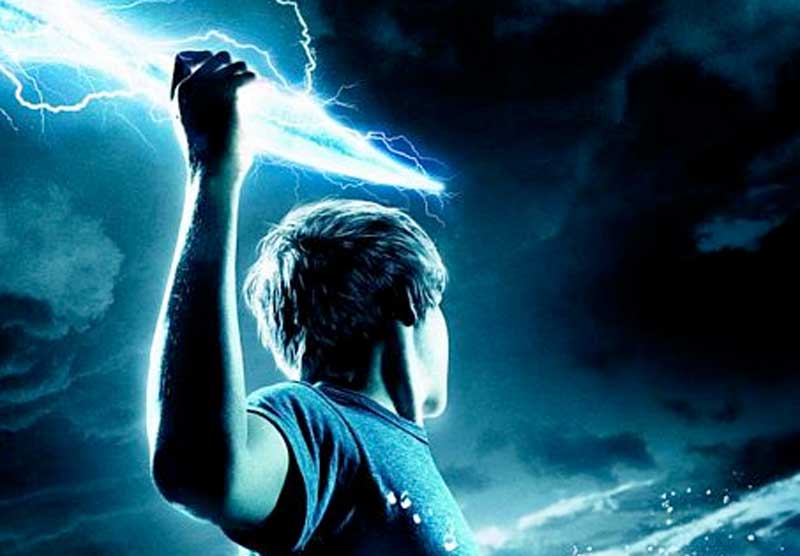“Percy Jackson and the Olympians: The Lightning Thief” reaches for the heights of Mount Olympus, but only makes it as far as the great mountain’s entrance gates.
While the mythological story accomplishes enough to make a sequel likely, it ultimately takes its place as just another film in the long line of children’s books adapted for the big screen.
Unlike its book counterpart, however, “Jackson” comes across as anything but a children’s film. The very premise of the gods having sexual relations with humans sharply contrasts with Christian values, and the rest of the story takes unnecessary steps to make this into an adult film.
The film’s title character, Percy Jackson, played by Logan Lerman, is the son of Poseidon and has grown up without any knowledge of his father’s position or his own demi-god powers. Zeus made a law that forbade any god from having relations with his or her demi-god children. Percy crosses paths with Zeus, however, when someone steals Zeus’ lightning bolt and Percy gets blamed. Suddenly, Poseidon and Zeus’ brother, Hades, along with a host of many other characters, come after Percy, wanting the lightning bolt for themselves.
When Hades kidnaps Percy’s mother, Percy sneaks out of a camp for demi-gods, where he has begun his training, to save his mother. Along for the road to Hell are Grover, Percy’s protector, and Annabeth, daughter of Athena, the goddess of wisdom. Together, they face monsters worse than Hell itself.
“Jackson” has several flaws. All the gods live in America, not Greece, a relocation never explained. When Percy’s mother gets taken to Hell, it’s easy to not care, and Pierce Brosnan gets far too little screen time as Chiron, the centaur who trains Percy. The CGI effects often fail to bring a suspension of belief and needed items, such as bows and arrows, seem to appear out of nowhere.
Meanwhile, Chiron the centaur and Grover the satyr are able to hide their animal halves in front of humans without any explanation. And then there’s the head of Medusa, a slimy, slivering thing that turns people to stone with one look. Don’t we all need one of those to carry around in our backpack? Mind you, the parts with Medusa, played brilliantly by Uma Thurman, are some of the most enjoyable parts of the film, but they’re also the weirdest parts.
None of “Jackson’s” flaws compare to the way its sexual elements almost ruin the film altogether. The film takes the younger, innocent characters of the book, makes them older, and turns them into characters that accept immoral actions. Grover, the party goat, comes close to pervert status, making advances toward almost every girl he sees and accepting the advances of Hades’ promiscuous wife. And what’s a sexually inclined film without a scene in Las Vegas?
“Jackson” does not fail on every count, however. The sequences in Hell are visually impressive, although they, along with other monsters in the film, may scare younger audiences. Percy’s feelings toward the father who left him gives viewers something to relate to, and his sacrificial actions make him a character to look up to.
While some characters do not make a mark, Percy and Annabeth (played by Alexandra Daddario) play well off each other, creating a memorable and enjoyable love-hate relationship. An adventure in itself, the film’s music also leaves an impression. While listeners can hear elements of other film scores, the score fits the film well and exudes the magnificence of Mount Olympus.
Percy’s journey includes several humorous moments, as well as a few action scenes, making for a simply enjoyable film. Directed by Chris Columbus (who directed the first two “Harry Potter” films), “Jackson” takes viewers on an exciting journey to the world of the gods and demi-gods, but fails to make an impression as a whole. With its overused sexual jokes and with its actors failures to connect emotionally, the film does not stand up to the high standards set by its predecessors like the “Harry Potter” series. Nor does have enough weight to draw the overwhelming amount of fans the “Twilight” series has accumulated.







